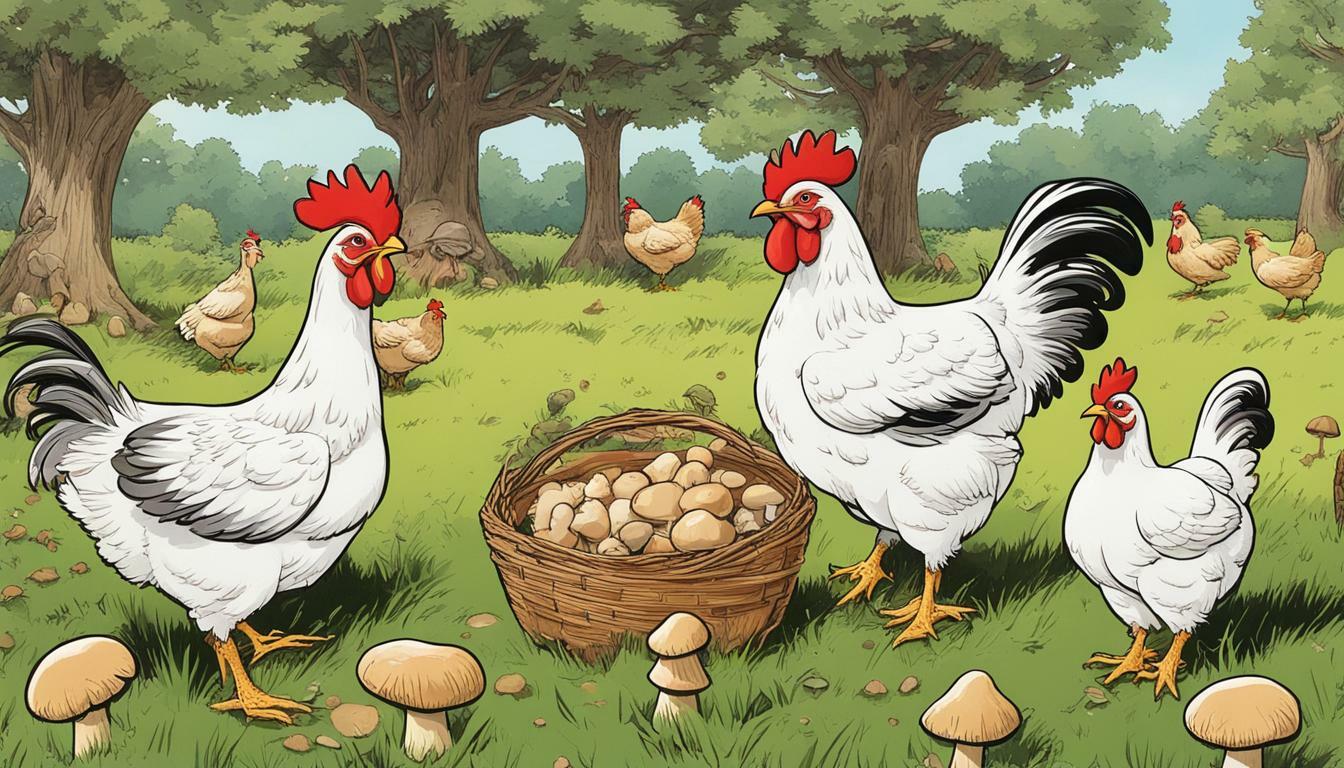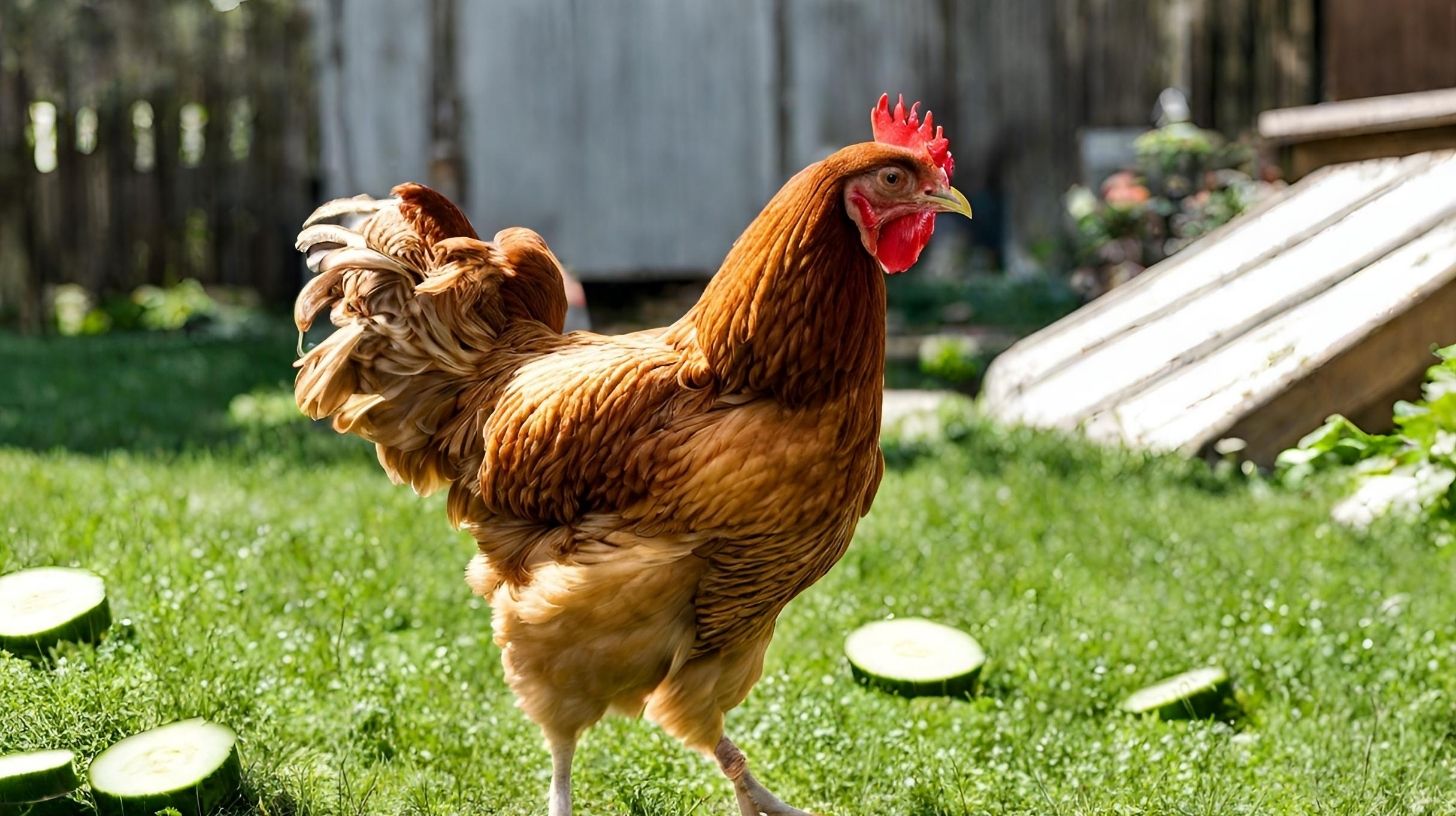Can Chickens Eat Nightcrawlers? Feeding Guide And Tips

Table of content:
Chicken owners often look for ways to provide their flock with optimal nutrition from natural sources. Nightcrawlers, also known as earthworms, are a protein-rich food source that many chickens love. But can chickens eat nightcrawlers safely?
Benefits of Feeding Nightcrawlers to Chickens
Nightcrawlers offer many potential benefits for backyard chickens:
- Excellent source of protein to support growth, egg production, and overall health
- Provides important amino acids like lysine and methionine
- High in vitamins and minerals like B12, iron, and magnesium
- Contains beneficial omega-3 fatty acids
- Natural food chickens would forage for in the wild
- Allows chickens to engage in natural foraging behaviors
- Adds variety to diet and prevents boredom
- Chickens find them very palatable and enjoy them as treats
So feeding chickens earthworms can be an excellent way to provide added nutrition from a whole-food source.
Are Nightcrawlers Safe for Chickens to Eat?
Nightcrawlers gathered from soil where no pesticides, fertilizers, or other chemicals have been used are safe for chicken consumption. However, a few precautions are advised:
- Avoid worms from ground treated with chemicals, near roads, etc.
- Don’t feed earthworms raw poultry or pork to avoid disease transmission
- Wash worms before feeding to remove dirt and bacteria
- Introduce new worms slowly in case they upset sensitive digestion
- Feed worms in moderation to avoid excess fat/protein intake
As long as these guidelines are followed, most chickens can eat and benefit from nightcrawlers in their diet. Monitor chickens after introducing to watch for any signs of intestinal upset.
How Often and How Many Worms Can Chickens Eat?
Nightcrawlers are best fed to backyard chickens in moderation, about 1-2 times per week. Limit portion to 2-3 earthworms per chicken in a serving.
Chickens with an active foraging lifestyle on pasture may naturally consume more worms than this. But chickens confined to a run or coop full time should not eat nightcrawlers daily, as they are quite rich.
Monitor your chickens’ body condition and egg laying performance. Reduce worm feeding frequency if chickens become overweight or egg production drops, as excess protein can negatively affect laying.
Best Practices for Feeding Earthworms to Chickens
Follow these tips for safely incorporating nightcrawlers into your flock’s diet:
- Source worms from chemical-free ground or raise your own in a worm bin
- Allow chickens to forage for worms naturally in the garden, yard, etc.
- Rinse worms well and chop into smaller pieces for chicks
- Offer worms in the morning when chickens are hungry
- Feed worms from your hand to encourage foraging behaviors
- Mix chopped worms into feeders with layer mash or pellets
- Refrigerate for 1-2 days before feeding to purge worms
- Always provide free-choice insoluble grit to aid digestion
Alternatives to Nightcrawlers for Chicken Treats
If earthworms are not available, here are some other healthy treats chickens love:
- Chopped hard-boiled eggs with shells
- Mealworms
- Chopped fruits and vegetables – watermelon, berries, lettuce, etc.
- Seeds and nuts – sunflower, flax, peanuts
- Yogurt, cheese, cottage cheese
- Leafy greens – kale, spinach, chard
- Kitchen scraps – bits of meat, bread, pasta, grains
For the best nutrition, feed a wide variety of fresh, natural treats in moderation.
Benefits of Natural Treats and Foraging for Chickens
Allowing chickens to forage for treats like nightcrawlers provides benefits beyond nutrition:
- Reduces stress and boredom
- Encourages natural behaviors
- Increases exercise
- Provides mental stimulation
- Boosts gut health with diverse foods
- Makes chickens happier and more active
A varied diet full of whole foods supports every aspect of chicken health and vitality.
Final Thoughts
Nightcrawlers and other natural, protein-rich foods contribute to optimal chicken nutrition. Feed worms in moderation along with a base diet of layer feed and flock appropriate supplements. Supporting chickens’ natural foraging behaviors provides the best outcome for their wellbeing. Observe your flock as you add new treats like worms to ensure they are tolerated well. A diverse, whole food diet leads to healthy, productive backyard chickens.
Welcome. I’m Adreena Shanum, the proud owner of this website, and I am incredibly passionate about animals, especially poultry. I founded adreenapets.com as a labor of love, stemming from my desire to share my knowledge and experiences with poultry enthusiasts worldwide.




